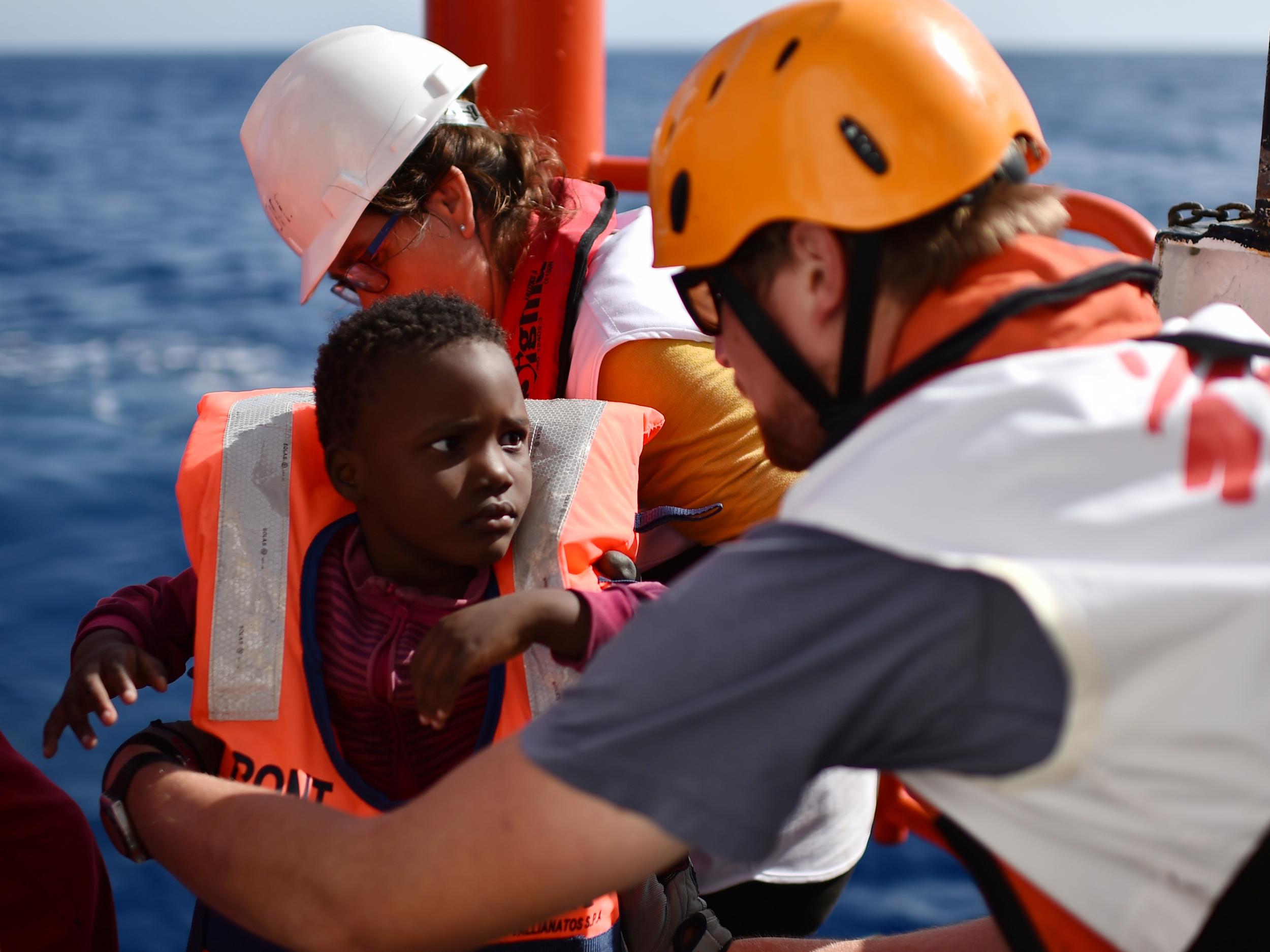Children’s word of the year revealed to be ‘refugee’
It beat ‘Darth Vader’ and the hashtag symbol to the award

“Refugee” has been chosen as Children’s Word of the Year after a dramatic increase in youngsters using the term in their creative writing.
Analysis of the 123,436 entries to BBC Radio 2’s 500 Words short story competition found 339 uses of the word.
This is a 368% increase from 2015, when it cropped up just 67 times.
Researchers from the University of Oxford found that the attitudes towards refugees were generally empathetic and positive. Young writers showed particular sympathy for the plight of their fellow children, with a focus on what it would be like to leave home and undertake a difficult journey.
Issues tackled included the war in Syria, journeys across the Mediterranean, life in refugee camps, lone travellers, and the feeling of not being wanted anywhere.
There were also 34 uses of “migrant”, but it was used interchangeably with “refugee”, according to the research. Other words to see a rise in usage include boat, camp, dinghy, crisis, border, shelter, journey, sea, desperate, safe, flee, travel, and trek.
“Refugee” may be less controversial than last year’s pick, when the hashtag symbol “#” triumphed as Word of the Year – despite not being a word.
The research also traced the influence of astronaut Tim Peake, blockbuster film Star Wars: The Force Awakens, and the 400th anniversary of William Shakespeare's death on the young writers, who are all aged between five and 13.
Major Peake, who is currently on the International Space Station, notched up 586 mentions and made his debut in the Top 10 list of famous people appearing in the stories.
Shakespeare also made his entry into the Top 10 for the first time, at number five with 736 mentions.
Children frequently brought characters from real life and fiction – including one contestant who wrote: “The next morning his business partner Donald Trump came in and he fired Luke Skywalker for horrible work.”
The influence of Star Wars could be seen in the 332 mentions of Darth Vader (up from 69), 267 of lightsabers (up from 48) and 123 of stormtroopers (up from 19).
Vineeta Gupta, the head of children’s dictionaries at Oxford University Press, said: “The children writing in this year’s competition have demonstrated a sophisticated use of language in their storytelling.
“They have used rich descriptions to convey emotion and have produced powerful stories that resonate with the reader.”
Head judge, the Radio 2 presenter Chris Evans said: “OUP’s research has shown how aware and engaged children are with the world around them, not just at home, but globally and even inter-galactically!
“The imagination of kids never ceases to amaze me and I'm so proud that BBC Radio 2’s 500 Words has again fired up their creativity and shown how talented and inspiring the young people of the United Kingdom are.”
The final of the 500 Words competition will take place on Friday at Shakespeare's Globe in London, with honorary judge the Duchess of Cornwall presenting prizes to the winners.
Join our commenting forum
Join thought-provoking conversations, follow other Independent readers and see their replies
Comments